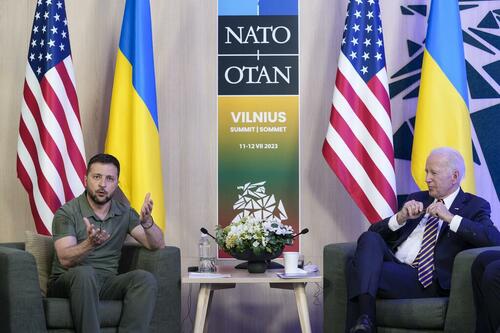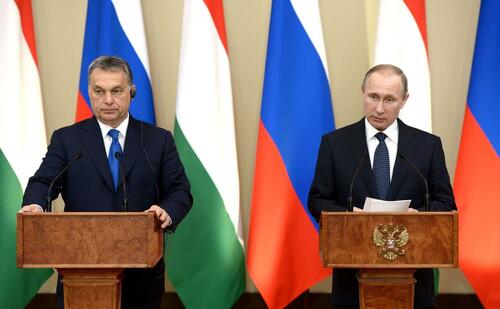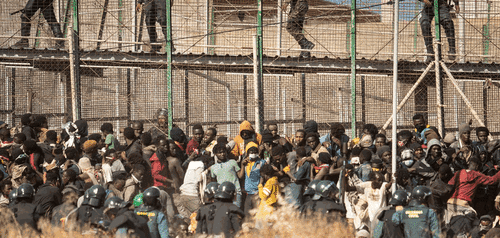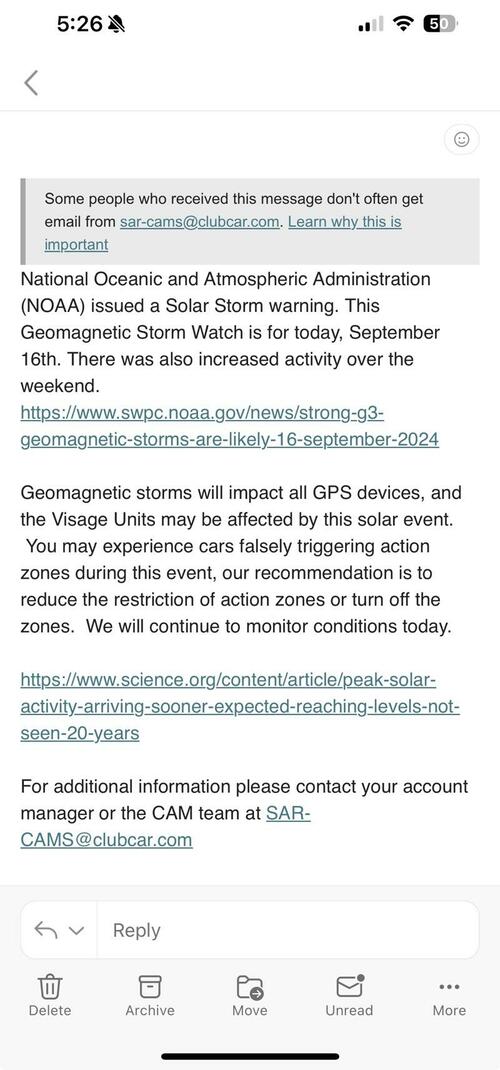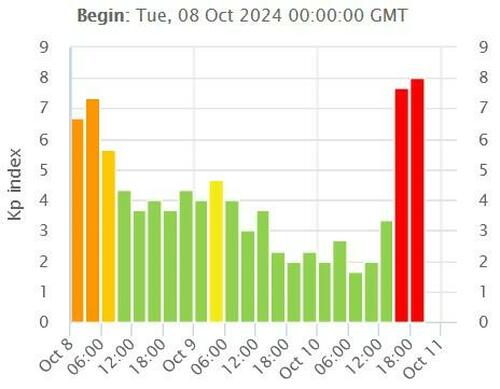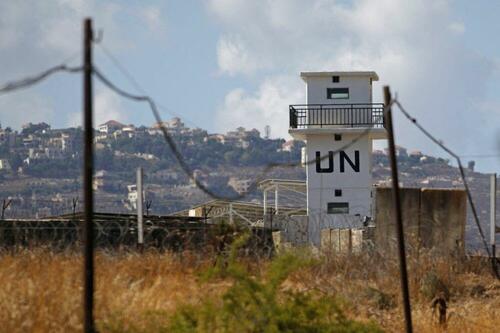Authored by RFE/RL staff via OilPrice.com,
-
The EU has approved a new sanctions mechanism to target Russian hybrid threats, expanding the scope of existing sanctions beyond geographical limitations and specific actions.
-
The new sanctions aim to address a wider range of destabilizing activities, including election interference, disinformation campaigns, and attacks on critical infrastructure.
-
The effectiveness of the new sanctions will depend on the ability of EU member states to provide compelling evidence of Russian involvement in such activities.
Ambassadors from the 27 European Union member states on October 2 agreed to a new sanctions mechanism targeting Russian hybrid actions. Broadly, “hybrid” here means actions carried out on behalf of a state to undermine the functioning of another country, so, for example, trying to impact elections or targeting critical infrastructure. It is expected that the new measures will be formally agreed by the bloc’s finance ministers when they assemble in Luxembourg on October 8.

The new sanctions regime is, according to the EU diplomats I have spoken to, meant to plug some of the gaps in the current restrictive measures on the Kremlin.
Essentially, the EU has two types of sanctions regimes: geographical and horizontal. Brussels has mostly used geographical sanctions — which focus on a particular location or political entity — to hit Russia since its full-scale invasion of Ukraine in February 2022. In short, it targets the Russian government, its citizens and entities, such as companies, that the bloc deems to have undermined the territorial integrity of Ukraine.
In this area, Brussels has gone quite far — introducing all sorts of economic sanctions on various Russian industries, such as oil, diamonds, and coal, just to mention a few, as well as imposing visa bans, and asset freezes on around 2,300 people and firms.
Then, on top of that, there are horizontal sanctions that are not limited to one country and that target people and companies around the globe. In this area, the bloc has sanctions pertaining to terrorism, cyberattacks, the use of chemical weapons, and human rights abuses. Russian citizens are blacklisted under these horizontal sanctions as well.
Deep Background:
Earlier this year, the EU created something of a mix between a geographical and a horizontal sanctions regime — creating a blacklist of people committing human rights abuses in Russia. The sanctions largely targeted people responsible for the jailing and mistreatment of Russian opposition figures such as Vladimir Kara-Murza, who was released from a Russian prison last month in a major prisoner swap between Russia and the West, as well as Aleksei Navalny, who died in mysterious circumstances in a Russian prison in February.
The sanctions just agreed by the EU are a similar mix. But, actually, they go a step further. The text, prepared by the legal service of the Council of the EU, one of the bloc’s main decision-making bodies, and seen by RFE/RL, notes that the EU is free to impose asset freezes and visa bans on people or entities that are “responsible for, implementing, supporting, or benefiting from actions or policies by the government of the Russian Federation, which undermine or threaten democracy, the rule of law, stability or security in the union or in one or several of its member states, in an international organization, or in a third country.”
So, in a sense, it covers not only Russian citizens, but also other nationals working for Russia — and it involves not only actions taken in the European Union but worldwide. Brussels could, in other words, now go after a wide spectrum of Russian activities, not just confined to a narrow geographical area (such as Ukraine) or very specific actions (such as human rights abuses).
The two big challenges going forward, however, will be defining the hybrid actions, or “destabilizing activities,” as the official document puts it, and then proving that Russia is responsible.
It will be up to the member states to present compelling evidence that the bloc’s legal service can approve. This is likely to prove tricky, especially given that all 27 member states must sign off. It is also unclear how far back the sanctions can go — or if potential new listings will only be able to concern recent actions.
Drilling Down:
The legal text lists eight different examples that are sanctionable.
The first one is perhaps the most wide-ranging: “the obstruction or undermining of the democratic political process,” which includes trying to tamper with elections or challenging the constitutional order of a country.
It will likely be hard to prove that Russia is effectively interfering in an EU member state. However, the new sanctions may open up the possibilities of the bloc punishing Russians attempting to interfere in vulnerable third countries. Two cases in point: both Georgia and Moldova are holding crucial elections this month. Georgia is holding parliamentary elections on October 20.
The second example listed in the EU’s legal document concerns the planning, directing, or engaging in violent demonstrations. Diplomats I spoke to said that this could apply to a situation such as recent riots in the United Kingdom, which began in July after the fatal stabbing of three young girls in the northern English town of Southport. Disinformation helped fuel the riots, which developed strong anti-Muslim and anti-migrant sentiments. If it was proven that Russians were fanning the protests online, they could be targeted if something similar were to occur.
The third sanctionable offense is activities that “silence, intimidate, coerce, or exact reprisals against persons critical of the actions or policies of the Russian Federation.” So, for example, that could apply to something like the hammer and tear-gas attack in Lithuania earlier this year on Leonid Volkov, a former close aide to Navalny.
Then there is “coordinated information manipulation.” A good example of the type of activity this could apply to would be the Prague-based Voice of Europe website that both the Czech Republic and the EU placed sanctions on earlier this year for running a Russian influence operation.
Another sanctionable offense would be the targeting of critical infrastructure in EU member states. This includes crimes such as damaging undersea cables, but could also include arson attacks on buildings and public transportation.
What the EU called the “instrumentalization of migrants” could also be targeted, with examples seen at the borders of Latvia, Lithuania, and Poland, where the Belarusian authorities, often supported by Russia, have been accused of flying in migrants, mainly from Asia, and then sending them to the borders of nearby EU countries.
The last two items on the EU’s list are activities that Wagner and other Russian-sponsored mercenary groups would most likely carry out. The EU would target actions such as “instigating or facilitating an armed conflict in a third country” and exploiting such armed conflicts through “the illicit exploitation or trade of natural resources and wildlife in a third country.” That is a reference to illegal ivory or diamond trading.

